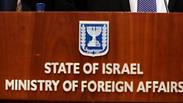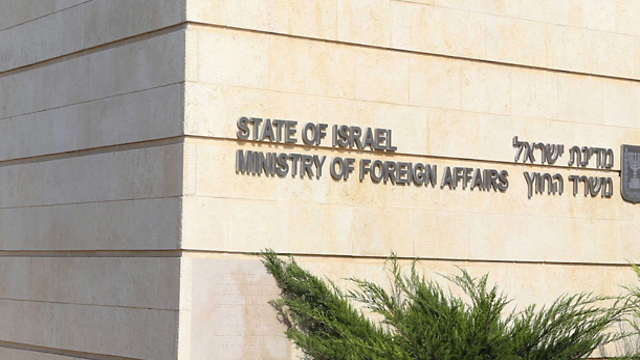

Head of Foreign Ministry's cultural division calls its closure bad for democracy
After the Foreign Ministry decides to dissolve its Cultural and Scientific Affairs Division and re-delegate its responsibilities to the Media and Public Affairs Division, Rafi Gamzu—the head of the cultural division—criticizes the move as populist, claiming it will hurt Israel's image as a free democracy.
The outgoing head of the Foreign Ministry's Cultural and Scientific Affairs Division, Rafi Gamzu sent a farewell letter rife with scathing criticism to senior Foreign Ministry officials over their decision to dissolve the division and re-delegate its responsibilities to the Media and Public Affairs Division.
Many Foreign Ministry officials claim that the decision will undermine the independence of the department, whose concerns are restricted solely to cultural considerations, in favor of public relations considerations.
For example, the department decides which artists are going to represent the country abroad.
Gamzu echoed this sentiment, writing in his letter that "recently, Israel's perception of membership in the club of free democracies has been eroded and many of our friends in cultural circles around the world expressed their concerns over this.
"I hope that whoever is appointed to the post will stand against the populist draft that is blowing around us, and prevent it from penetrating the division's professional considerations," he said,
"This is so that the division will continue to strengthen and maintain Israel's image as a democracy that produces and exports a quality, pluralistic and vibrant culture, for it is our professional duty as public servants and diplomats responsible for dialogue with policymakers and public figures around the world."
Gamzu went on to explain his concern that the division's re-delegation may harm Israel's position in the free world.
"During my tenure, I took great care to protect the inputs and products of the division's work in Israel and abroad, because of the danger of their being implicated in propaganda manipulations. Incidentally, it is a claim made against us by BDS officials which often gives them legitimacy to call for a boycott of Israeli cultural events abroad.
"I did this not out of stubborn ideology, but out of a deep belief that this is the way it should be done in order to produce the most welcome results for the State of Israel. Making wise and sometimes courageous decisions is the one thing that proves that the only democracy in the Middle East is a claim that has basis (in facts—ed).
"There is no doubt that Israel's perception as a productive country and a quality cultural exporter, a democracy that conducts an open internal discourse and a courageous discussion that is not deterred by self-examination and criticism, which fosters artistic freedom of expression, contributes to the closeness and identification of these (democratic—ed) states."
Sources in the Foreign Ministry claim that in order to calm the unrest in the ministry over the disseverment of the division, the ministry plans to change the name of the Media and Public Affairs Division to the Department of Public Diplomacy.
According to them, this is just a simple rebranding, and in practice, the head of the cultural division will not be independent in his decisions and will depend on the head of the department above him—who is a public relations person.
















